The right wing twists Dr. Martin Luther King Jr.’s words to attack anti-racist education, focusing almost exclusively on MLK’s “I have a dream” declaration.
But Dr. King was a radical — in the most profound sense.
He denounced the Vietnam war, when it was politically risky, and did not mince words about U.S. racism: “The doctrine of white supremacy was imbedded in every textbook and preached in practically every pulpit. It became a structural part of the culture.”
On this holiday weekend, take a moment to read King in context, including his thoughts on Reconstruction, war, nuclear weapons, and police brutality.
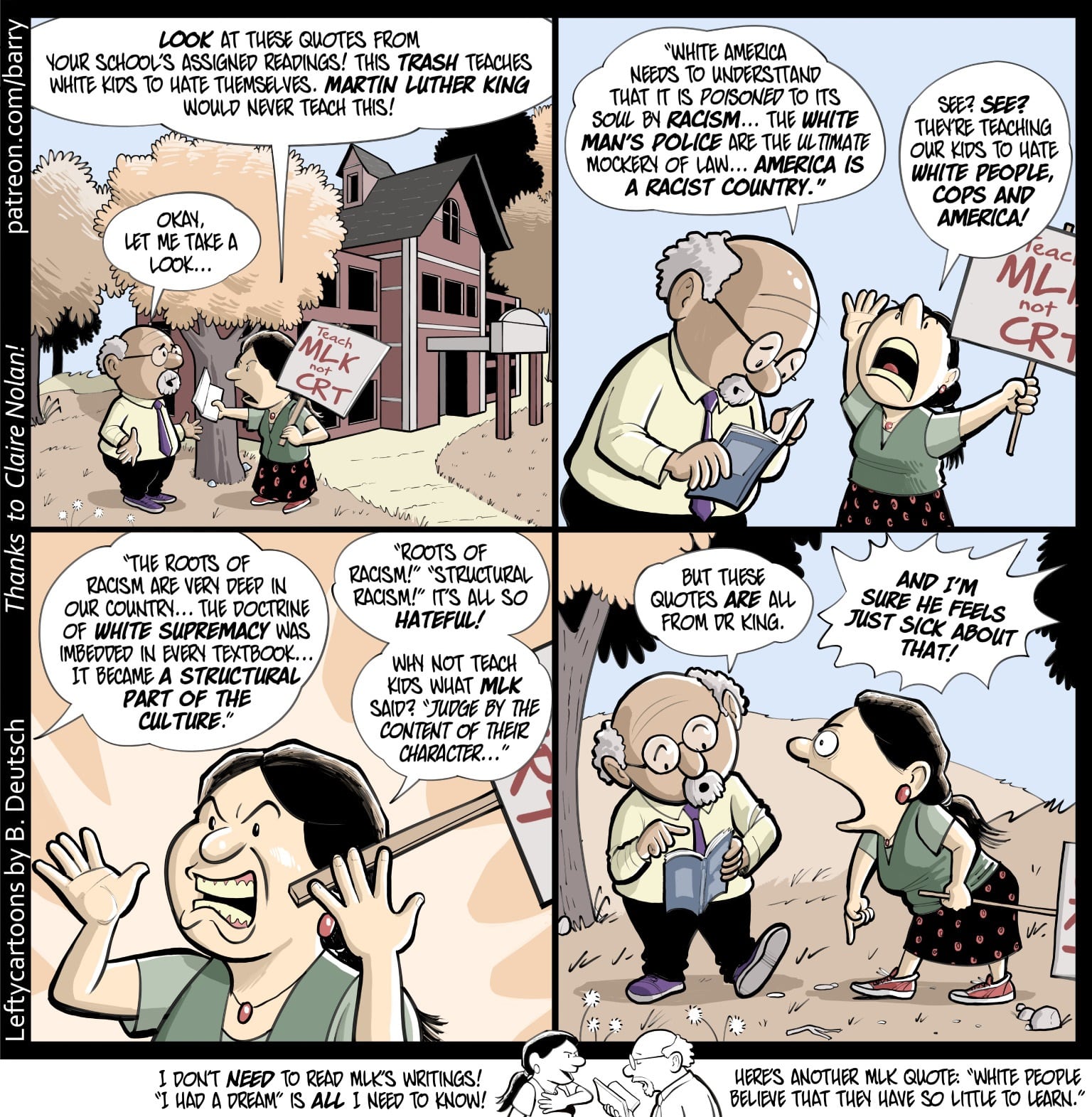
Cartoon used with permission of artist Barry Deutsch.
Themes
On War
A nation that continues year after year to spend more money on military defense than on programs of social uplift is approaching spiritual death . . .
Our only hope today lies in our ability to recapture the revolutionary spirit and go out into a sometimes hostile world declaring eternal hostility to poverty, racism, and militarism. — Martin Luther King Jr., A Revolution of Values
Check out our growing list of resources for teaching about Palestine and Israel.
On Nuclear Weapons
These days, some textbooks acknowledge Dr. King’s critique of the Vietnam War. However, King’s actions against nuclear weapons began a full decade earlier in the late 1950s. From 1957 until his death, through speeches, sermons, interviews, and marches, King consistently protested the use of nuclear weapons and war. King called for an end to nuclear testing, asking, “What will be the ultimate value of having established social justice in a context where all people, Negro and White, are merely free to face destruction by Strontium-90 or atomic war?” — Vincent Intondi in “The Untold History of the Movement to Ban the Bomb”
On Police Brutality
In a lesser-known part of his March on Washington speech, Dr. Martin Luther King Jr. proclaimed, “We can never be satisfied as long as the Negro is the victim of the unspeakable horrors of police brutality.” He described “the total pattern of economic exploitation under which Negroes suffer” in northern cities as a “system of internal colonialism” where police and the courts act as “enforcers.” — Jeanne Theoharis in The Atlantic
Resources
Here are resources about Dr. Martin Luther King Jr., beyond the traditional narrative.
Books
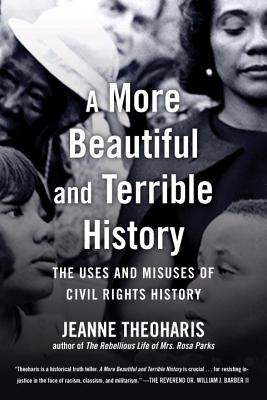 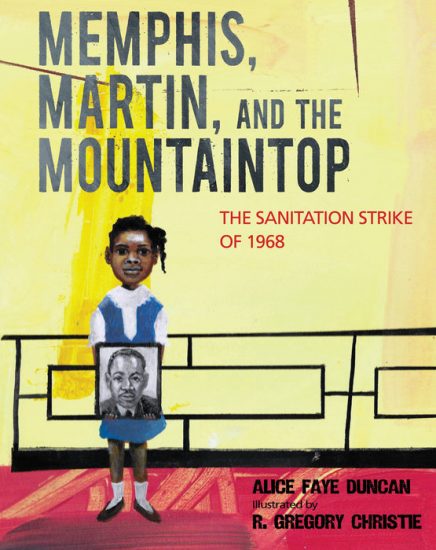 |
A More Beautiful and Terrible History: The Uses and Misuses of Civil Rights History by Jeanne Theoharis Be a King: Dr. Martin Luther King Jr.’s Dream and You by Carole Boston Weatherford. Illustrated by James E. Ransome (Bloomsbury Publishing Inc.) Memphis, Martin, and the Mountaintop: The Sanitation Strike of 1968 by Alice Faye Duncan. Illustrated by R. Gregory Christie (Calkins Creek Books) The Radical King by Martin Luther King Jr. Edited by Cornel West (Beacon Press) |
Lessons and Articles
Videos
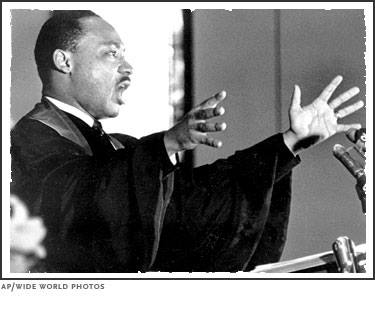 |
At the River I Stand Documentary film on the African American sanitation workers’ 1968 fight for human dignity and a living wage in Memphis. Dr. Martin Luther King Jr.: “Beyond Vietnam” Dramatic reading of Dr. Martin Luther King’s “Beyond Vietnam” (1967) speech by Michael Ealy. Dr. Martin Luther King Jr. in His Own Words 2020 segment of Democracy Now! |
This Day In History
Class: The Dr. Martin Luther King Jr. You Won’t Read About in Textbooks
On January 10, 2022, the Zinn Education Project hosted historian Jeanne Theoharis in conversation with Jesse Hagopian about the Dr. Martin Luther King Jr. not found in textbooks and school curricula. As Theoharis notes in The Atlantic, “Critics of Black Lives Matter have held up King as a foil to the movement’s criticisms of law enforcement, but those are views that King himself shared. Martin Luther King Jr. proclaimed, ‘We can never be satisfied as long as the Negro is the victim of the unspeakable horrors of police brutality.’ King understood that police brutality — like segregation — wasn’t just a southern problem.”
Below is a video recording of the class.
Below is an audio recording of the class. Find other audio recordings from the Zinn Education Project Teach the Black Freedom Struggle online classes here.
Presenters: Jeanne Theoharis is a distinguished professor at Brooklyn College. She is the author or co-author of nine books and numerous articles on the Civil Rights and Black Power movements and the politics of race and education. Her books include the award-winning titles The Rebellious Life of Mrs. Rosa Parks and A More Beautiful and Terrible History: The Uses and Misuses of Civil Rights History. Jesse Hagopian teaches Ethnic Studies and is the co-adviser to the Black Student Union at Garfield High School in Seattle. He is an editor for Rethinking Schools, the co-editor of Teaching for Black Lives, and editor of More Than a Score: The New Uprising Against High-Stakes Testing.

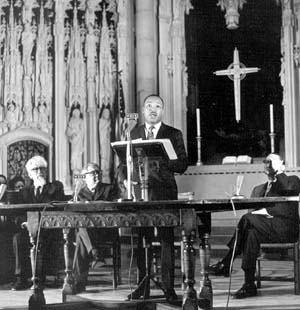
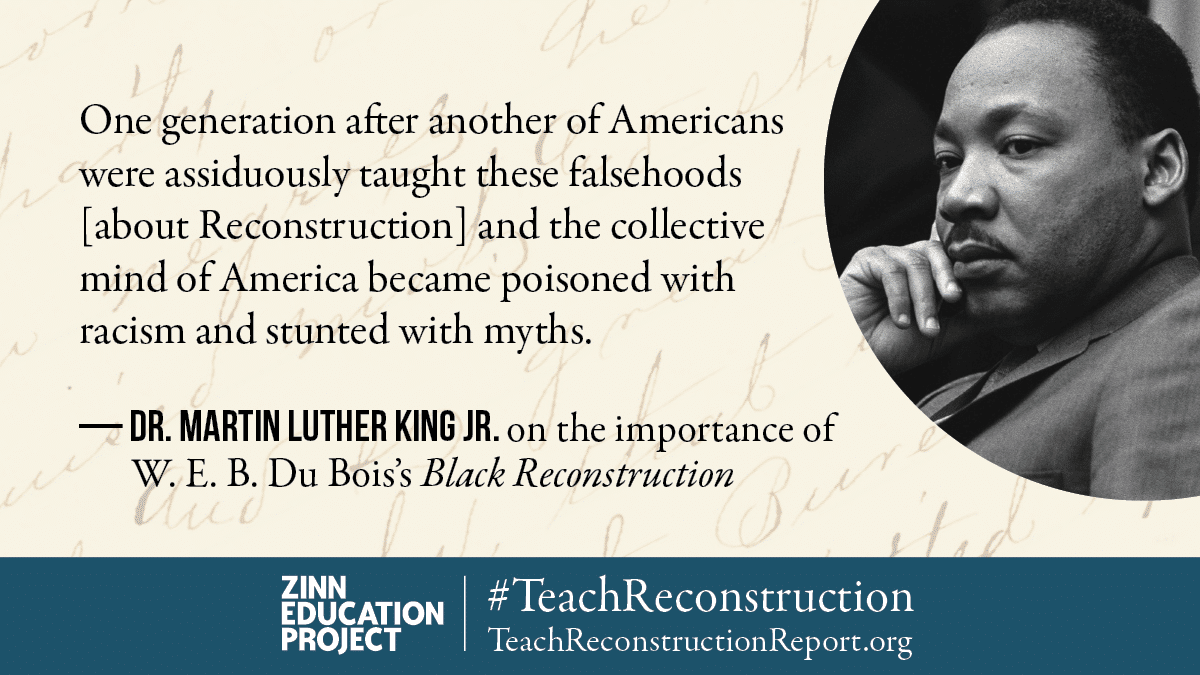
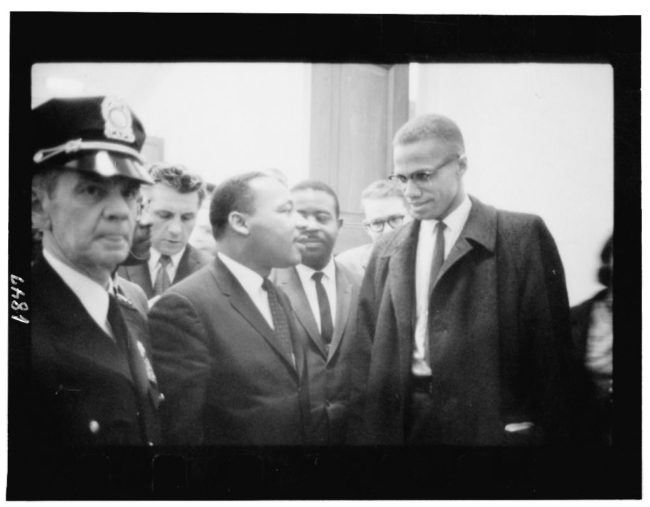
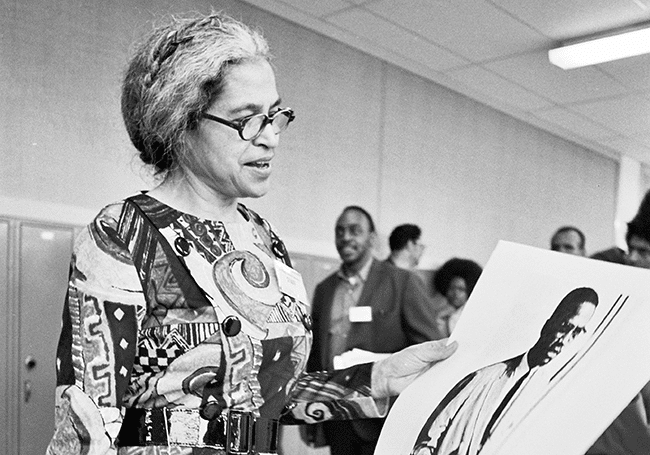
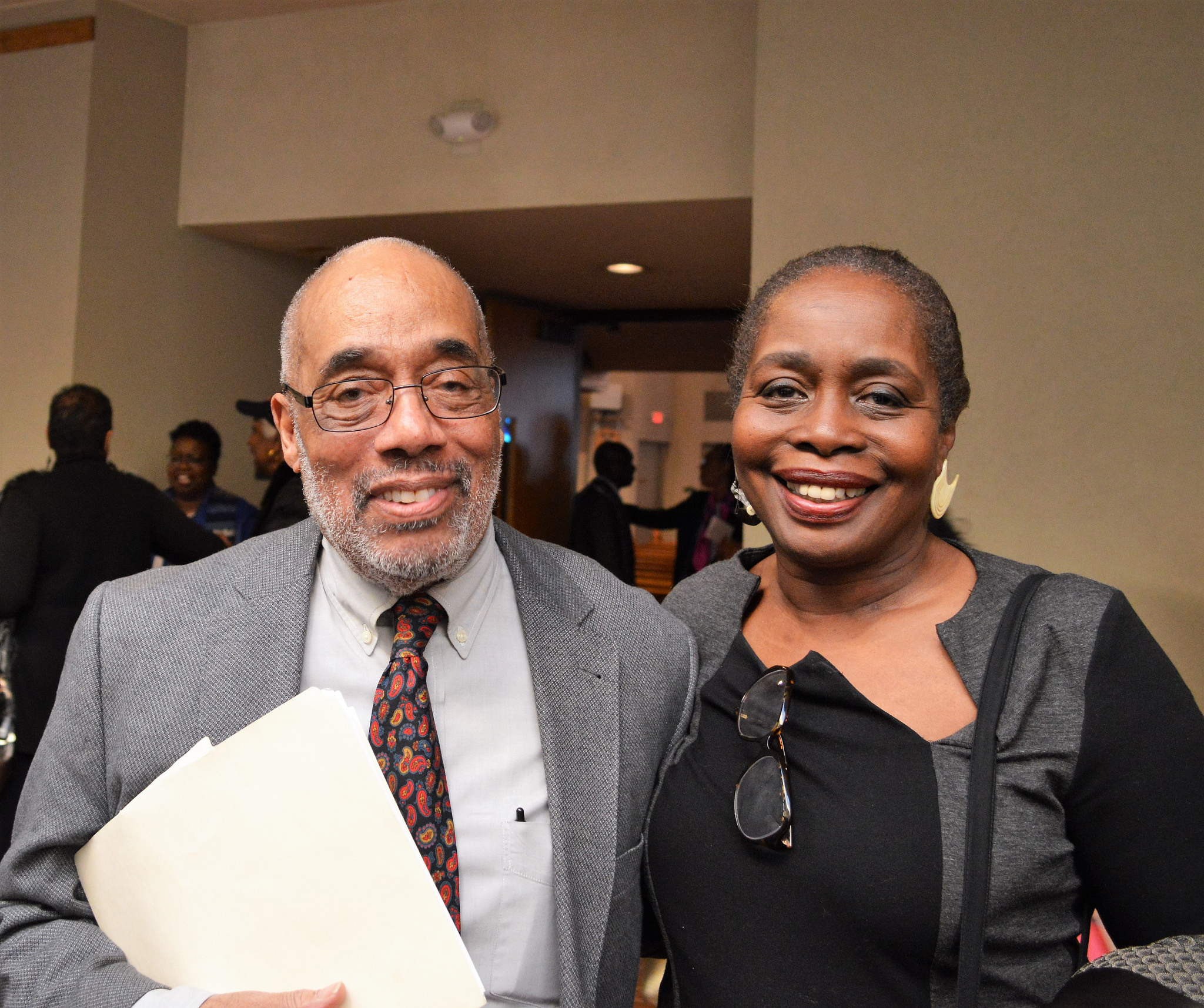
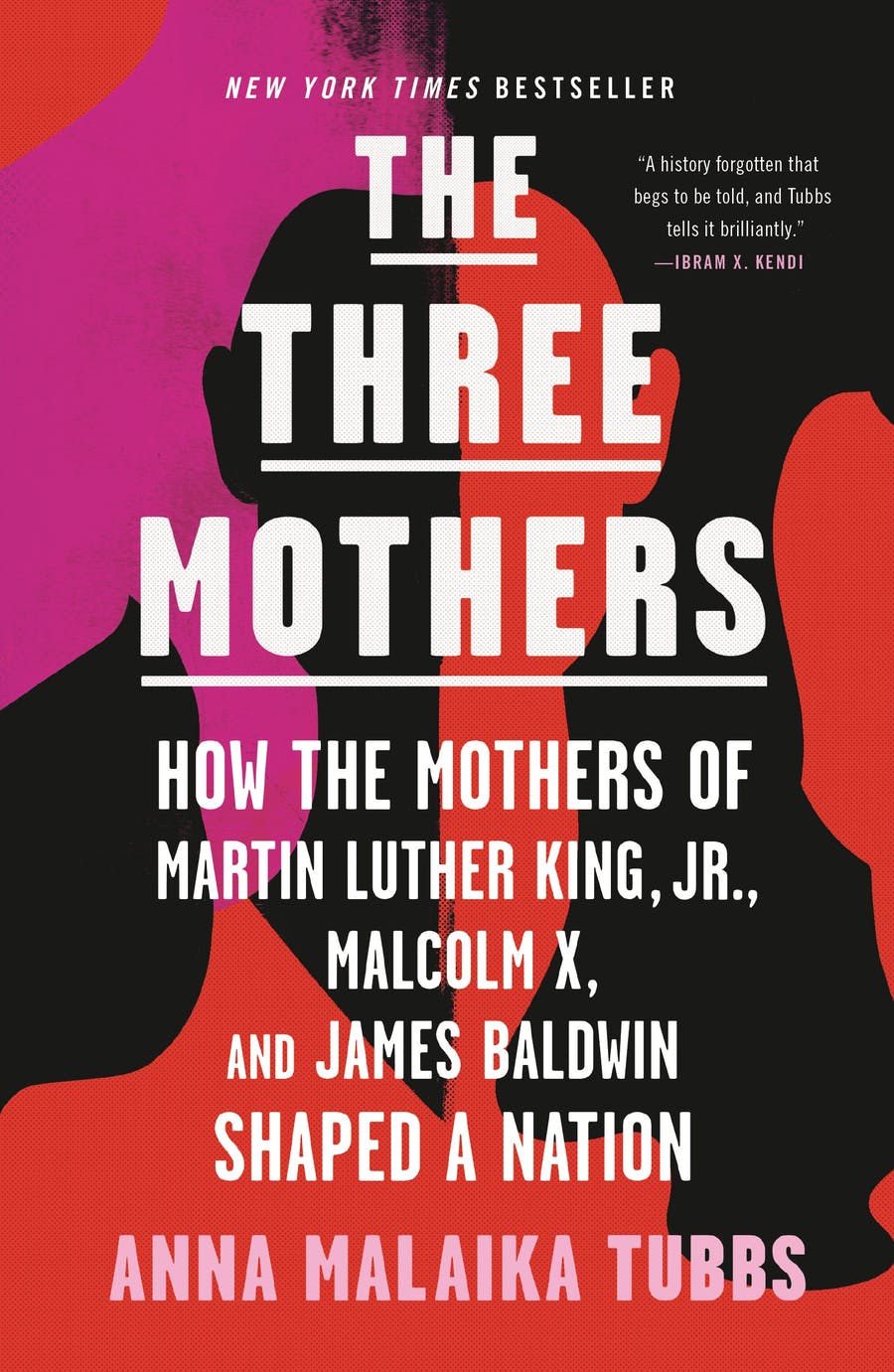
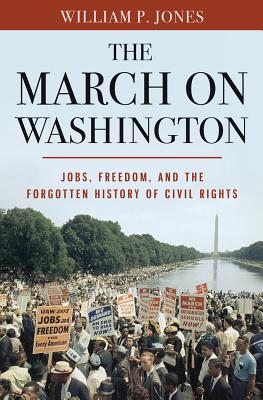
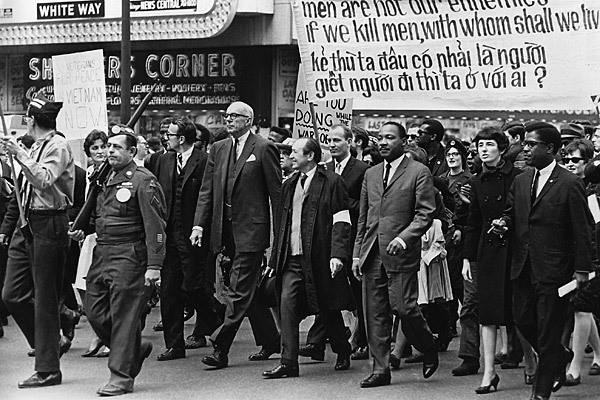
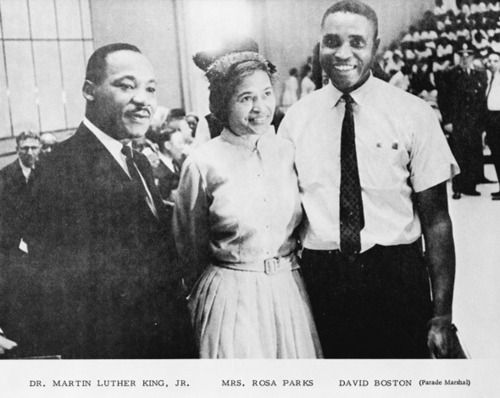
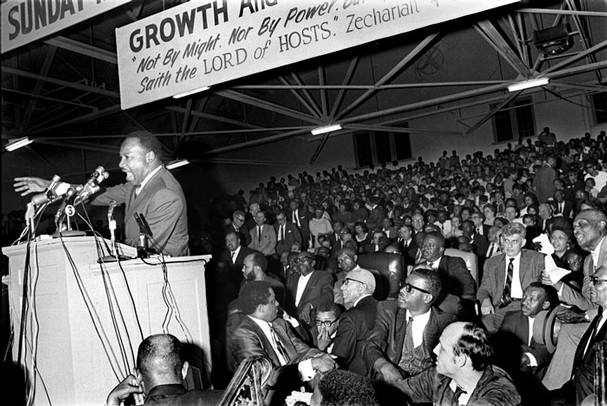





Twitter
Google plus
LinkedIn